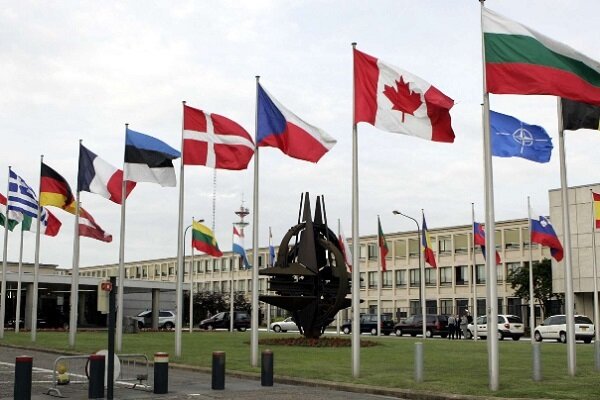Since its establishment in 1949 up to 1900, the North Atlantic Treaty Organization (NATO) sought to confront the Soviet Union and expand Western territory. However, contrary to many people's beliefs, not only the Organization did not restrict its activities after the collapse of the Soviet Union, but also it (NATO) has expanded its activities day by day.
Joining new members to the Organization, expanding military forces in other countries and occupying countries such as Afghanistan and Libya have been among NATO's expansionist moves in the post-Cold war years.
This behavior, which in many cases has increased sensitivity and confrontation of independent countries, is now continuing and developing. Most International Relations analysts believe that the most important factor in the Russia-Ukraine conflict is the development of Western security structures and particularly NATO toward Russia's borders. However, it seems that NATO does not intend to put aside this tension-creating behavior for international security.
British Foreign Secretary Liz Truss on Sunday ahead of the NATO Summit called for the creation of a Global NATO and said, “The important issue today is to focus on a global NATO because, at the same time as securing the European zone, we must also take care of the security of Indo-Pacific region.”
In recent days, Finland and Sweden have officially announced their readiness to join NATO, a major sign of NATO expansion in Europe.
Reacting to Sweden and Finland's request to join NATO, Russian President Vladimir Putin said that Russia has no problem with these countries, their joining does not pose a threat, but rather provokes reactive measures."
“NATO has gone beyond its geopolitical policy and is trying to influence politics of other regions. This requires our attention," Putin said.
Of course, this expansionism has not been accepted by people of various countries. As at Sunday's NATO summit, hundreds of protesters on the Japanese “Island of Okinawa” staged a demonstration calling for a reduction in US military presence in Japan.
In fact, people of many countries, whose governments are members of NATO and/or cooperate with NATO, are of the opinion that not only NATO is not considered as a security factor, but also a tool to advance US unilateralist approach.
The root cause of fear and different behavior of some countries to distance themselves from the United States and cooperate with other countries also lies in this factor. For example, Turkey's move to buy the S400 missile defense system from Russia and Saudi Arabia’s increased military equipment purchases from China along with diversifying arms purchases and getting rid of Western monopoly are indicators of this dangerous feeling.
The plan of “Global NATO” which has recently been raised by the UK is a new action by NATO's main players i.e. the United States and Britain to rearrange the Organization to meet Western goals and promote dominance over strategic geographical areas of the world. It is predicted that the implementation of this plan, which will naturally be accompanied by the weakening of national armies and disarmament of Western rivals, will give rise to the emergence of new challenges in the international arena.
British Foreign Secretary Liz Truss’s remarks about Global NATO’s mission in the Indo-Pacific region, which is essentially a military action against the East with a focus on countries such as China, Iran and India, are a clear indication of the West's willingness to continue its policy of unilateralism and use of military means as the mainstay of its implementation.
The “Global NATO” can be considered as a continuation of NATO's structural decisions and reforms in 2016. Under these changes, NATO has exited from the merely military nature of security for Europe and the United States.
While entering the discussions such as cyber warfare, electronic warfare, space warfare, political and economic warfare along with the formation of special forces, NATO began a new path to carry out interventionist operations anywhere in the world.
However, since its establishment, NATO has made reforms in its structure and goals after each period and these reforms have always developed the scope of Western military influence and also increased conflict with nonmember countries.
The hegemonic approach of the main pillars of NATO, especially Britain and the United States, which have a long history of colonialism, occupation and unilateralism, is one of the most important causes of fragility in international security. The Ukraine crisis, whose political, security and economic effects have become global, is the most obvious example of the detrimental effects of the idea of a global NATO.
The “Global NATO” will certainly not be a harbinger of stability and security but will pose new threats to international security in various geographical areas, especially in the eastern part of the world.
MA/Nournews96965

























Your Comment